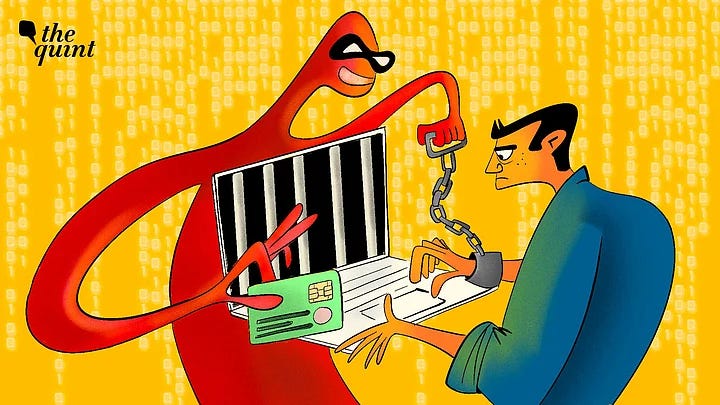The Question is… What Happens After Digital Arrest?
Scams are getting smarter—as are we. Share your story & support our work!
Dear Reader,
Have you ever received a phone call that changed your life? Not the good kind—but the kind that wipes out your savings.
Lakhs of Indians have.
Over the past few weeks, I spoke to six such individuals—all of whom ‘voluntarily’ transferred their life savings to scamsters pretending to be police officers and CBI inspectors. They stayed on call with the fraudsters for days, sometimes months, isolated from their families, following instructions of the scamsters to transfer the money.
Here’s what that looks like in numbers:
Sushma, daughter of a Padma Shri awardee: Rs 6 crore
Nikita, senior marketing consultant: Rs 6 crore
Manoj, retired army officer: Rs 1.6 crore
Jane, 62-year-old communications professional: Rs 84 lakh
Chitra, former civil servant: Rs 21 lakh
Each call followed the same playbook—a fake investigation by impersonated officers, and an accusation linking them to serious crimes like money laundering or human trafficking. Then came the psychological manipulation: panic, urgency, complete isolation—until they were convinced to transfer every rupee to “sanitise” their money.
But this story isn’t just about how they lost money. The question is... What happens after you report the scam?
Every victim I spoke to described the same ordeal—knocking on every possible door: banks, courts, cybercrime cells, ministries—and getting nowhere.
“In most cases, the bigger trauma is what happens after you call 1930 (cybercrime helpline). It is not a helpline — it’s part two of the scandal,” Nikita told me. She wondered if scamsters were relying on inefficiency of the system to get away with their crimes.
The question then is... Are our systems even equipped to deal with a scam this sophisticated?
Not quite. From banks and cybercrime cells to any 'awareness' campaign, they often end up blaming the victims rather than helping them. These six individuals, along with a dozen others, have now come together through a WhatsApp group. They’ve compiled their stories, filed RTIs, prepared dockets, and are seeking time with the Prime Minister’s Office.
They Lost Crores. Then Came the Silence: What Happens After Digital Arrest?
One of the many questions they want answered is: Why is the onus only on the victim? Why is there no accountability for banks?
Every victim is in a different stage of their trauma. Some have given up hope. Some are still trying to make sense of what happened. Some are trying, and failing, to forget the money ever existed. A few haven’t even told their families yet.
But all of them were let down by the system that was meant to protect them.
It took me weeks to piece together this story. One of the biggest challenges was to encourage the victims to share their struggles without making them relive their traumatic experiences.
Such investigations take significant time and resources, which is why we rely on YOUR SUPPORT. Become a member of The Quint today and help us continue delivering stories that matter to the public.
Before I sign off, if you or someone you know has faced a similar experience, do reach out to us. We’re listening.
Warmly,
TANISHKA SODHI
Senior Assistant Editor, The Quint
Also Read:
*Already a member of The Quint? What a star! Your support empowers us to question everything.
Want us to cover a story? Write to us at editor@thequint.com or reply to this email.





